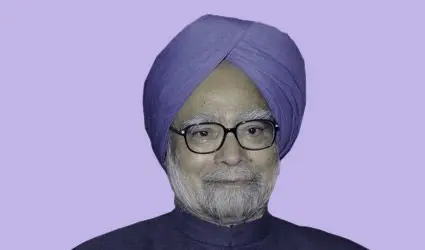New Delhi: The Union Cabinet on Friday passed a condolence resolution in the memory of Dr Manmohan Singh, former Prime Minister who passed away on December 26, 2024 at All India Institute of Medical Sciences (AIIMS), Delhi at the age of 92.
The Cabinet chaired by Prime Minister Narendra Modi paid homage to Dr. Manmohan Singh by observing a two-minute silence.
“Dr. Manmohan Singh has left his imprint on our national life. In his passing away, the Nation has lost an eminent statesman, renowned economist and a distinguished leader,” the resolution said.
The Cabinet extended its heartfelt condolences on behalf of the Government and entire nation to the bereaved family.
The central government has declared state mourning for seven days till January 1, 2025 to pay respect to Dr Singh.
During this mourning period, the national flag will be flown half-mast throughout India. The national flag will also be flown at half-mast in all the Indian Missions/High Commissions abroad for seven days.
Dr. Manmohan Singh will be accorded state funeral. On the day of state funeral, a half day holiday will be declared in all the central government offices and state-run public sector undertakings.
Two-time prime minister of India, Dr. Singh began his career as a Senior Lecturer in Punjab University, Chandigarh and became Professor of Economics in the same University. In 1969, he became Professor of International Trade in the Delhi School of Economics, Delhi University. Dr Singh became Economic Adviser in 1971 in the then Ministry of Foreign Trade. He was Chief Economic Adviser, Ministry of Finance (1972-76), Secretary, Department of Economic Affairs (November 1976 to April 1980), Member Secretary, Planning Commission (April 1980 to September 1982), and Governor of Reserve Bank of India (September 1982 to January 1985).
Among the many awards and honours conferred upon Dr. Singh in his career, the most prominent are India’s second highest civilian honour, the Padma Vibhushan (1987), the Jawaharlal Nehru Birth Centenary Award of Indian’s Science Congress (1995), the Euro Money Award for Finance Minister of the year (1993), the Adam Smith Prize of the University of Cambridge (1956).
“Dr. Manmohan Singh served as India’s Finance Minister between 1991 to 1996. His role in ushering in a comprehensive policy of economic reforms is well recognized. Dr. Singh became the Prime Minister of India on 22nd May, 2004 and served as Prime Minister till May, 2009. He became Prime Minister for the second term from May 2009 to 2014,” said the condolence resolution passed by the Cabinet.
UNI


